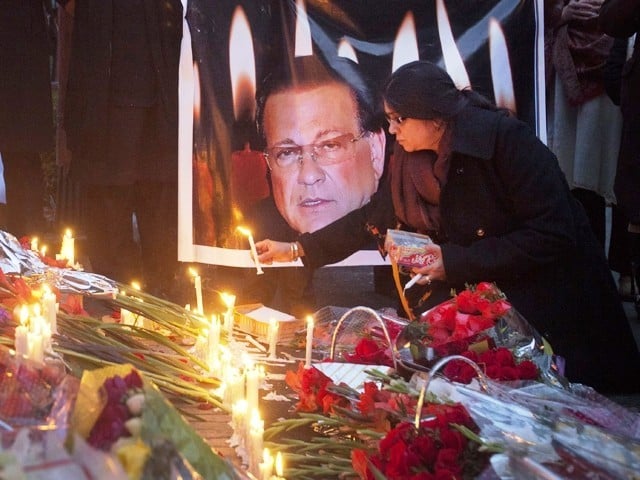Mumtaz Qadri, part of the security detail of the late Governor of Punjab Salmaan Taseer, was convicted and sentenced to death by an anti-terrorism court for murdering his charge on January 4, 2011. The accused killed the governor in a crowded marketplace in Islamabad because he opposed his victim’s public criticism of the blasphemy law that had been increasingly abused to prosecute innocent people, often belonging to religious minorities but also Muslims. Despite the conviction, Qadri’s death sentence has still not been carried out and his defence team, including a former Lahore High Court Chief Justice, is currently appealing the verdict by attempting to have his confession declared invalid. Since his time in prison, Qadri has instigated a guard at Adiala Jail to kill one prisoner accused of blasphemy and wound another. The prison official had been guarding Qadri’s cell and confessed to taking religious lessons from his detainee. The fact that Qadri is still able to organise the assassinations of those accused of blasphemy from jail renders his imprisonment futile. Although Qadri, like any other citizen, is entitled to due process and an appeal against the verdict is his legal right, it is incredibly unusual, if not unheard of, for the case of a self-confessed and proven murderer to be dragged on for this long.
The proceedings so far have been mired in controversy and conspiracy, with the judge who originally sentenced Qadri fleeing the country after receiving death threats, lawyers ransacking the courthouse after the first verdict, 29 of the 43 witnesses missing and Qadri’s court records disappearing without explanation. It stands to reason that some members of the judiciary and government fear penalizing Qadri would open them up to the risk of sharing the same fate as his original victim. The amount of support that Qadri has gathered from lawyers, some members of the judiciary, along with the religious right, after he murdered the late governor is staggering. What’s more alarming than the fact that the climate around blasphemy issues allows extremists to take the law into their own hands and execute people accused, rightly or wrongly, of blasphemy, is the fact that fundamentalist assassins such as Qadri are turned into revered heroes of Islam by religious organisations that spread hatred and intolerance against anyone who doesn’t share their rigid and distorted beliefs. It is also alarming that so many members of the legal profession support a law that instigates violence, prosecutes those who, unlike Qadri, have neither been proved guilty nor given a fair trial, and allows criminals like him to literally get away with murder. It is hoped that now that Qadri’s appeal has come to court after an inordinate delay, the demands of justice will be fulfilled without any further unnecessary delay.

No comments:
Post a Comment